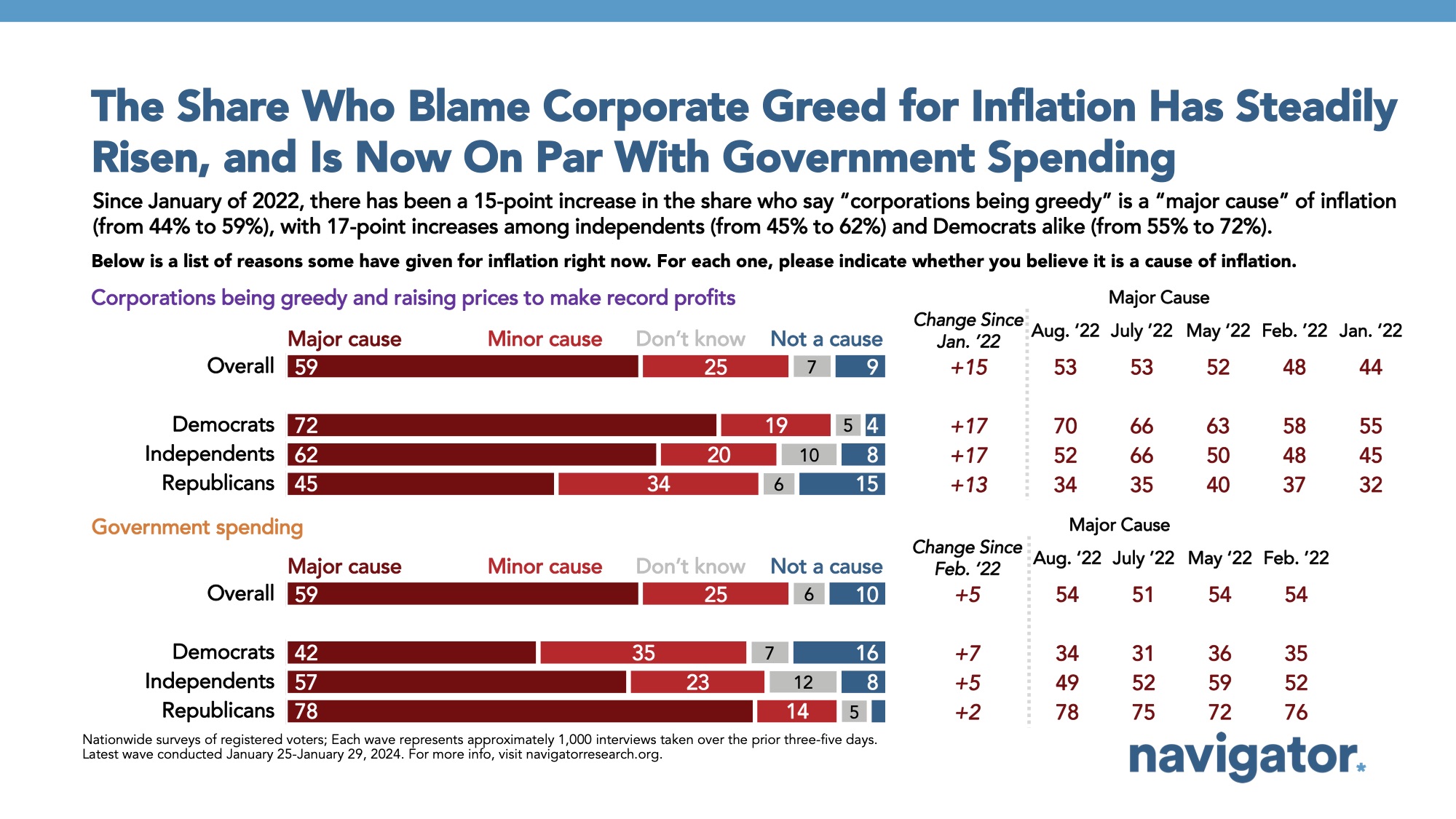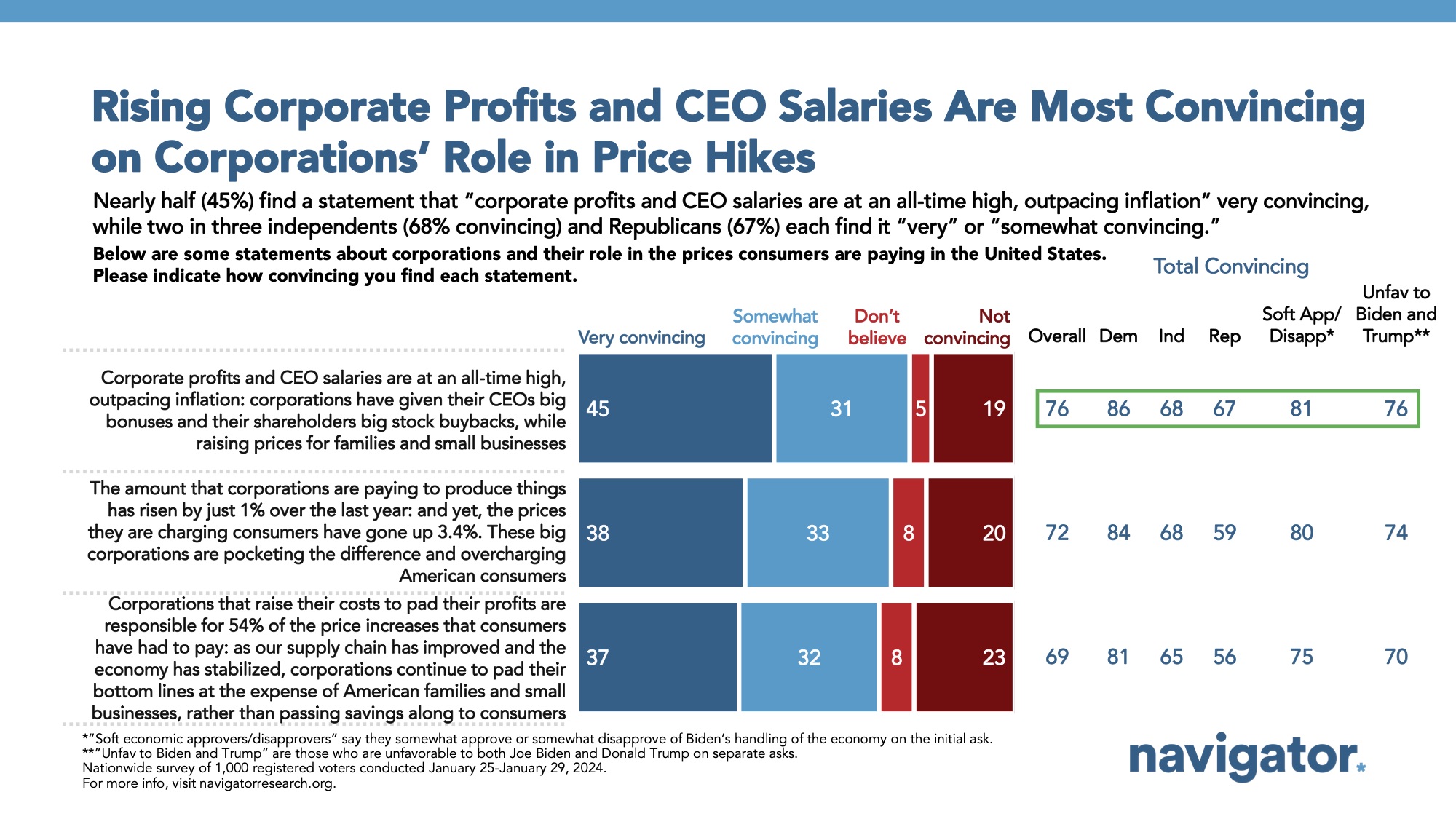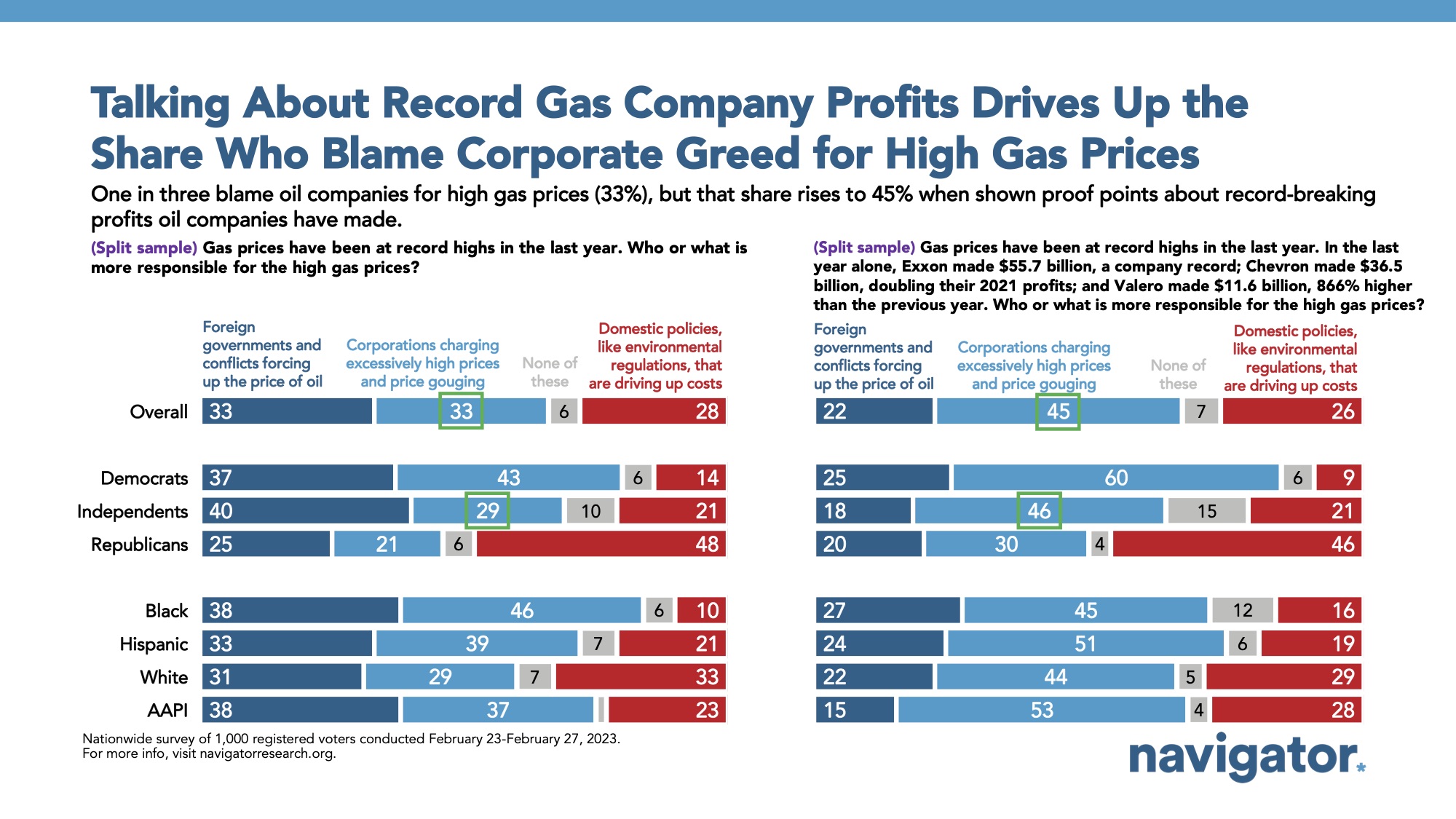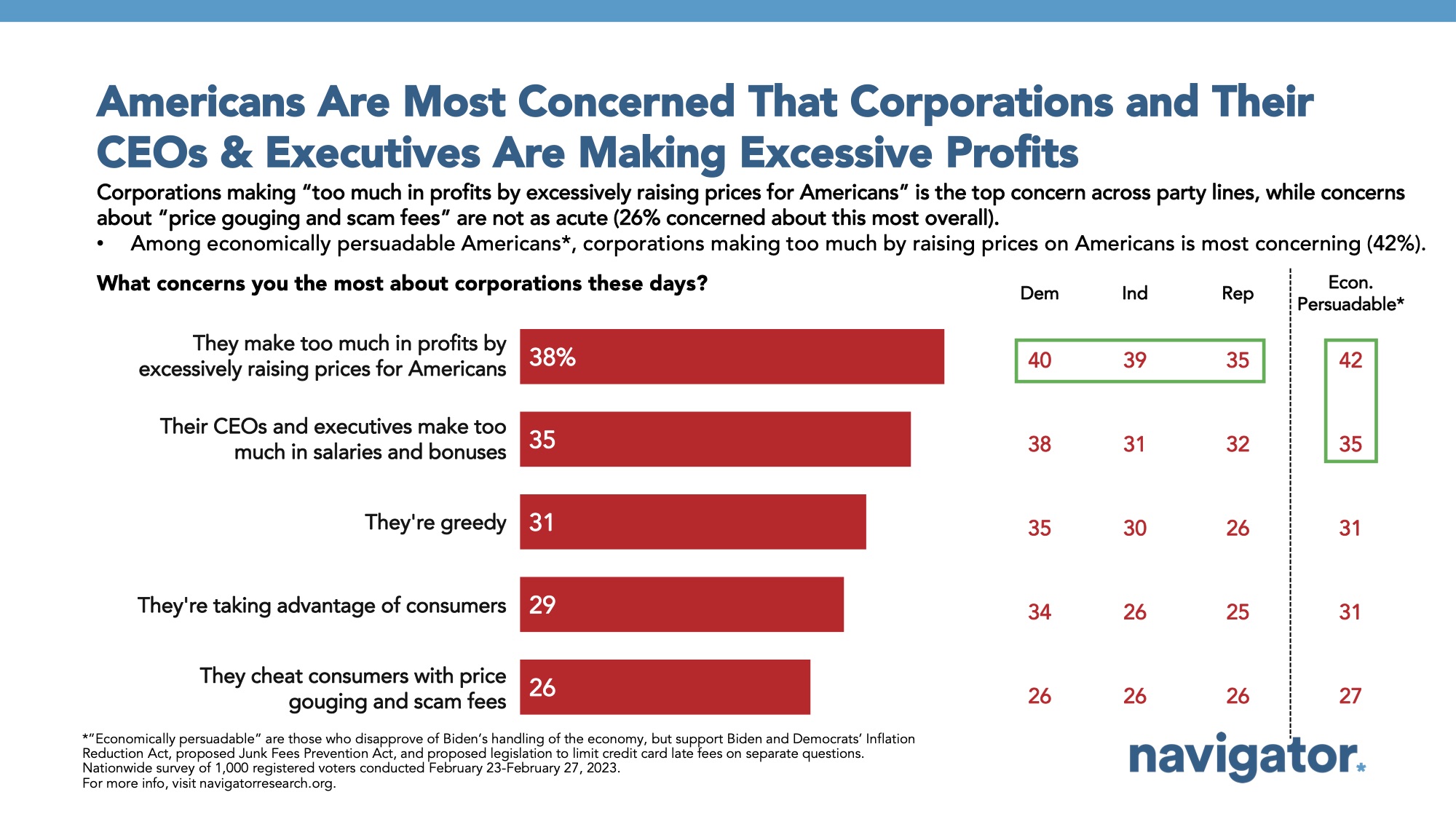Poll: Corporate Profits and CEO Salaries
This Navigator Research report contains polling data on what Americans see as the drivers of inflation, as well as messaging guidance to communicate about corporate greed causing costs to rise.
The share of Americans who blame corporate greed as the main cause of inflation has risen significantly over the last two years.
85 percent of Americans say “corporations being greedy and raising prices to make record profits” is a cause of inflation, with a majority who say it is a major cause of inflation (59 percent), a 15-point increase since January 2022 (from 44 percent then to 59 percent now). The share blaming corporate greed as a major cause for inflation has increased across partisanship, including among Democrats by 17 points (from 55 percent then to 72 percent now), independents by 17 points (from 45 percent then to 62 percent now), and Republicans by 13 points (from 32 percent then to 45 percent now).
- The share who blame corporate greed for inflation is now nearly identical to the share that blame government spending (84 percent cause, including 59 percent who say it is a major cause). Four in five also blame supply chain delays as a cause of inflation (80 percent); however, only 37 percent say it is a major cause.
- 90 percent of Americans working in service industry jobs believe “corporations being greedy and raising prices to make record profits” is a cause of inflation, including two in three who believe it is a major cause (66 percent).
The most convincing message on price increases highlights corporate profits and CEO salaries.
The most effective way to communicate about corporate greed is communicating that CEOs have benefitted from big bonuses as prices have been raised on families and small businesses. Three in four Americans find it convincing that “corporate profits and CEO salaries are at an all-time high, outpacing inflation: corporations have given their CEOs big bonuses and their shareholders big stock buybacks, while raising prices for families and small businesses” (76 percent convincing), including nearly seven in ten independents (68 percent), two in three Republicans (67 percent), four in five Americans who say they either somewhat approve or somewhat disapprove of President Biden’s handling of the economy (81 percent), and three in four Americans who are unfavorable toward both Biden and former President Trump (76 percent).
- Seven in ten Americans also find it convincing that “the amount that corporations are paying to produce things has risen by just 1 percent over the last year: and yet, the prices they are charging consumers have gone up 3.4 percent… these big corporations are pocketing the difference and overcharging American consumers” (72 percent convincing), including 74 percent of those who are unfavorable toward both Biden and Trump.
- A similar seven in ten share also find it convincing that “corporations that raise their costs to pad their profits are responsible for 54 percent of the price increases that consumers have had to pay: as our supply chain has improved and the economy has stabilized, corporations continue to pad their bottom lines at the expense of American families and small businesses, rather than passing savings along to consumers” (69 percent convincing).
- Reminder: In 2022, a Navigator survey found the most effective policies Americans believe will combat inflation include legislation that will allow Medicare to negotiate lower prescription drug prices, legislation that would help prevent price gouging by corporations, and raising taxes on the wealthy.




